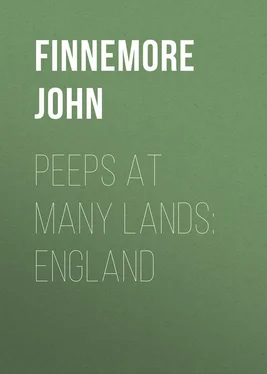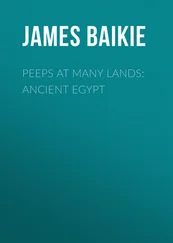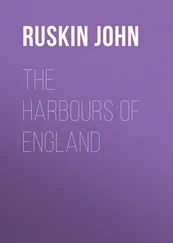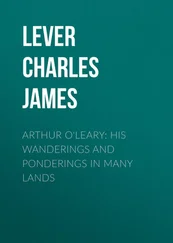John Finnemore - Peeps at Many Lands - England
Здесь есть возможность читать онлайн «John Finnemore - Peeps at Many Lands - England» — ознакомительный отрывок электронной книги совершенно бесплатно, а после прочтения отрывка купить полную версию. В некоторых случаях можно слушать аудио, скачать через торрент в формате fb2 и присутствует краткое содержание. Жанр: foreign_antique, foreign_prose, на английском языке. Описание произведения, (предисловие) а так же отзывы посетителей доступны на портале библиотеки ЛибКат.
- Название:Peeps at Many Lands: England
- Автор:
- Жанр:
- Год:неизвестен
- ISBN:нет данных
- Рейтинг книги:3 / 5. Голосов: 1
-
Избранное:Добавить в избранное
- Отзывы:
-
Ваша оценка:
- 60
- 1
- 2
- 3
- 4
- 5
Peeps at Many Lands: England: краткое содержание, описание и аннотация
Предлагаем к чтению аннотацию, описание, краткое содержание или предисловие (зависит от того, что написал сам автор книги «Peeps at Many Lands: England»). Если вы не нашли необходимую информацию о книге — напишите в комментариях, мы постараемся отыскать её.
Peeps at Many Lands: England — читать онлайн ознакомительный отрывок
Ниже представлен текст книги, разбитый по страницам. Система сохранения места последней прочитанной страницы, позволяет с удобством читать онлайн бесплатно книгу «Peeps at Many Lands: England», без необходимости каждый раз заново искать на чём Вы остановились. Поставьте закладку, и сможете в любой момент перейти на страницу, на которой закончили чтение.
Интервал:
Закладка:
From the river some of the most striking and beautiful pictures of Oxford may be gained. As the stream winds and turns, the pinnacles, spires, and domes of this most lovely city group themselves in ever-changing combinations, and draw the eye until Oxford is lost to view behind the lofty elms and the alders which fringe the stream.
Below Oxford the river runs quietly along between rich meadows which in spring and early summer are carpeted with lovely wild-flowers, past quaint old houses and riverside inns, under straggling and picturesque old bridges, and ripples over fords where heavy cart-horses splash knee-deep through the clear shining stream. Here and there are pleasant villages on the bank, each with its old church, whose graveyard is shaded by great yews and entered by a quaint lych-gate.
Of the larger towns on the Thames, Reading is among the most important. But we shall not speak of the busy Reading of to-day, with its seed-gardens and biscuit factories, but of long-ago Reading, when its great abbey was flourishing, and its Abbot one of the chief men in England.
Once when Henry VIII. was hunting in Windsor Forest, he lost his way, and arrived at the Abbey of Reading about dinner-time. He concealed his rank, and announced that he was one of the King's guard, and, in this character, was invited to the Abbot's table. A sirloin of beef was set on the table, and the hungry King made such play with his knife and fork that the Abbot could not but observe it.
"Ah," said the Abbot, "I would give a hundred pounds could I but feed on beef so heartily as you do. But my stomach is so weak that I can scarce digest a small rabbit or a chicken."
Bluff King Hal laughed and pledged his host in wine, thanked him for the good dinner, then went without giving any hint who he was.
A few weeks later some of the King's men came to the abbey, seized the Abbot, and carried him off to the Tower. Here he was shut up and fed on bread and water, and between this wretched food and his fears of the King's displeasure the poor Abbot had a very hard time.
Then one day a fine sirloin of beef was brought into his cell, and the famished priest leapt to the table and ate like a hungry farmer. In sprang Henry from a private place, where he had been watching his prisoner eat.
"Now, Sir Abbot," cried the King, "down with your hundred pounds, for of a surety I have found your appetite for you." Whereupon the Abbot paid up at once and went home, lighter in purse, but merry at heart to find that the King sought his money and not his head.
OLD FATHER THAMES – II
Below Reading the Thames becomes "the playground of London." All the summer long its bosom is dotted with boats, and the lawns upon its banks are filled with people who have fled from "town" to rest their eyes on green fields and the shining stretches of cool running water, so delightful after the heat and glare of London.
Many holiday-makers actually live on the river in a house-boat, a broad, flat-bottomed craft upon which a kind of wooden house is built, and moored in the stream. Others traverse the river in a rowing-boat, carrying tents and camping at night in a meadow beside the stream.
Going down-river from Reading, we come to Henley, where the noted regatta is held every year in the first week of July. It is the greatest of all river regattas, and the most famous boat clubs of the world send crews to Henley.
On a fine day of the Henley week the course presents a most striking and brilliant scene. The river is packed from side to side with boats of every size and kind – skiffs, punts, canoes – filled with ladies in pretty summer dresses and men in cool white flannels. The sides of the river are lined with house-boats, each bearing a gaily-dressed crowd and decked with beautiful flowers. Pennons and flags and streamers flutter in the sunshine, and the wonderful mingling of bright colours in the moving crowds on land and water presents one of the gayest and prettiest scenes in the world.
Suddenly a bell rings. Clear the course! A race is about to begin. Now the boats are pulled hastily to the side of the river, where the course is marked off by piles and booms. It seems impossible for the river full of craft to pack itself away along the sides, but in some fashion or other it is managed – skiffs, canoes, and punts all wedged together like sardines in a tin.
Then a shout rings along the banks – "They're off! they're off!" and all crane their necks to catch the first glimpse of the racing boats. Soon the long slender boats come dashing past, the eight men in each craft pulling with tremendous power, and the little cox crouching in the stern, tiller ropes in hand. Then rises a great outburst of cheers as the friends of the winners hail the victory.
Among the beautiful houses which stand upon the bank of the stream below Henley, there is one ancient and noble hall which forms a striking picture from the river. This is Bisham Abbey, where Queen Elizabeth was once a prisoner during her sister's reign, a house of many stories and legends. One of these stories tells that "the house is haunted by a certain Lady Hoby, who beat her little boy to death because he could not write without blots. She goes about wringing her hands and trying to cleanse them from indelible inkstains. The story has probably some foundation, for a number of copybooks of the age of Elizabeth were discovered behind one of the shutters during some later alterations, and one of these was deluged in every line with blots. We all know that great severity was exercised by parents with their children at that time; and the story, if not the ghost, may safely be accepted."
On we go, past the lovely wooded cliffs of Clieveden, through the well-known Boulter's Lock, and away downstream, till we see a mighty tower rise high above the river, and know that we are looking on the noble Round Tower which crowns Windsor Castle, the home of English kings. Near the river the castle looks very fine, its irregular pile of buildings rising in a series of rough levels, adorned by turrets, towers, and pinnacles, until the whole is topped and dominated by the mighty Round Tower built by Edward III., the hero of the French wars.
Since the days of the first Norman, Windsor Castle has been a favourite abode of English royalty. Other palaces have been built, to fall into neglect and decay, but Windsor has stood on its hill beside the Thames for more than 800 years, and it has been a royal castle all the time.
Opposite Windsor, most famous of all English palaces, stands Eton, most famous of all English schools. From the well-known North Terrace of Windsor Castle – open to the public from sunrise to sunset – it is possible to obtain a fine view of the great school. "We can look down on the whole of Eton – the church, with its tall spire; the buttresses and pinnacles of the chapel standing up white against an indigo background; the red and blue roofs piled this way and that; and the green playing-fields, girdled by the swift river."
The Thames is a great playground of the Eton boys. They row on it, and bathe in it. At the great Eton festival, on June 4, there is a procession of boats on the river, when the boys, dressed in quaint costumes, row to a small islet and return to the meadows beside the stream. There are two bathing-places – one, a small backwater, called Cuckoo Weir, where the lower boys bathe. Here is held the swimming trial which a boy must pass before he can go out boating. The other bathing-place, known by the fine title of Athens, is in the main river, and is used by the bigger boys.
A short distance downstream is the historic mead whose name is familiar on every lip. It is a quiet, smooth meadow beside the river, and it is Runnymede, or Runney Mead, where King John signed Magna Charta, and so made a beginning of English freedom. There is now an island in the Thames at that spot called Magna Charta Island, but it is not thought that the Charter was signed there. It is believed that John and the barons met on the mainland, the King riding down from Windsor to meet his offended subjects.
Читать дальшеИнтервал:
Закладка:
Похожие книги на «Peeps at Many Lands: England»
Представляем Вашему вниманию похожие книги на «Peeps at Many Lands: England» списком для выбора. Мы отобрали схожую по названию и смыслу литературу в надежде предоставить читателям больше вариантов отыскать новые, интересные, ещё непрочитанные произведения.
Обсуждение, отзывы о книге «Peeps at Many Lands: England» и просто собственные мнения читателей. Оставьте ваши комментарии, напишите, что Вы думаете о произведении, его смысле или главных героях. Укажите что конкретно понравилось, а что нет, и почему Вы так считаете.












